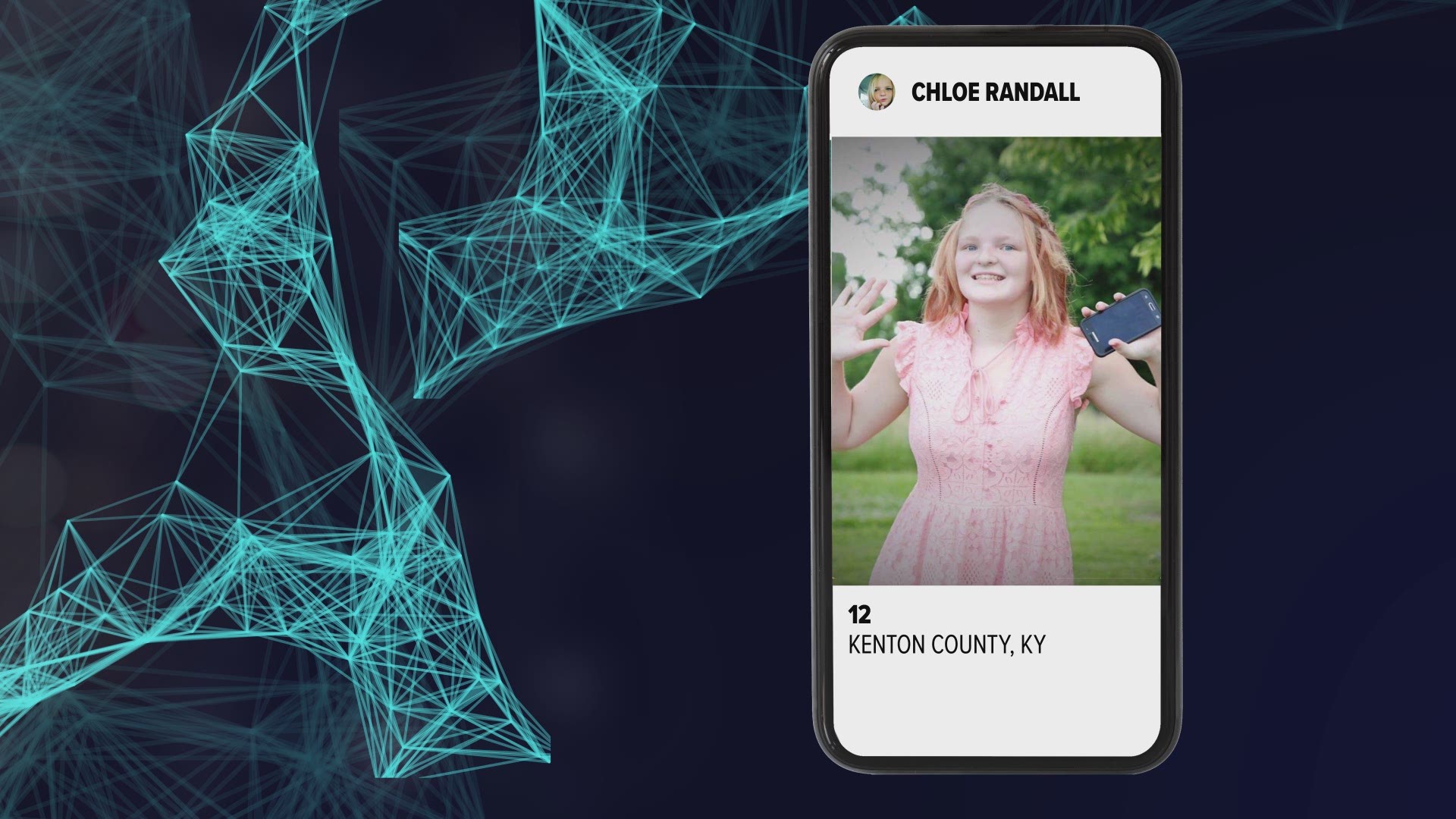WASHINGTON — The COVID-19 quarantine is increasing the threat of child predators. That’s the warning from a group that tracks the online trafficking of child pornography.
“Right now, especially with COVID-19 and that people are locked down, there's a huge increase in predators existing in places where our kids are hanging out,” said Chris Hadnagy, founder of the Innocent Lives Foundation, a group of computer experts who work with local law enforcement to sniff out and report on line child predators.
“Gaming networks, Fortnite, Minecraft, things that are online games where people can have headphones and chat with strangers," are all possible targets for predators, Hadnagy said.
Hadnagy says during the pandemic his undercover team has tracked a 200-300% increase in trafficking of child porn on the dark web.
He says those images are often obtained through a grooming process in which predators gain the trust of adolescents, then convince them to shift their conversations from text or social media to third party private messaging apps in order to keep conversations and the pictures sent back and forth hidden from parents.
The Worst Child Molester in Kenton County History
Chloe Randall was just 12 years old when she was raped by 29-year-old Matthew Bucher.
Prosecutors say Bucher used a fake name and age, telling Chloe he was just 17 when the two met while Chloe was on a run in her Northern Kentucky neighborhood in 2016.
The sexual assault happened two months later in Bucher’s apartment. The predator told Chloe he needed to go inside to pick up his wallet on their way to lunch.
“[We] went in and then he's like, oh, you can go sit on my bed,” Chloe said in an interview with WUSA9 Chief Investigative Reporter Eric Flack. Chloe’s mom, Tiffany, was present for the interview. “I did. And then he asked multiple times and I kept saying no.”
Chloe said Bucher kept pressing her to have sex.
"Like, if I wanted to while we were there. And I was like no. Like kept saying no and then he forced himself on me," she said.


Chloe, now 16, is sharing her survival story so she can help others. And while she didn’t meet her attacker online, he did try to get her to send him nude photos.
“However a predator meets a child, their goal is to get them to send digital content, because then they have it for life,” Hadnagy said.
Hadnagy said that can lead to what’s known as “sextortion" – when an abuser obtains one nude or revealing photo of someone and then uses it to blackmail them into sending even more graphic content.
Studies show 71% of all sextortion victims are minors, and not all of them girls. An estimated 22% of the victims are boys.
“I thought I was doing everything right as a parent," Chloe's mom, Tiffany, said.
Chloe did not send Bucher nude photos, despite his repeated requests. But investigators say he did convince others. After he was arrested for Chloe’s rape, investigators discovered more than 60,000 child porn images on his computer.
Prosecutors dubbed him "the worst child molester in Kenton County, Kentucky history."
Bucher was sentenced to 70 years in prison for the child porn, in addition to the 45 years he got for raping Chloe.
“We just went through the three-year anniversary of him being sentenced this past week,” Tiffany said. “So there's a lot of anger still. There's a lot of hurt”
Chloe’s mom said she thought she was doing everything right, checking her daughter’s phone nightly and maintaining an open line of communication and trust with her daughter.
“But I've learned that, you know, rape, sexual assault, everything like that can happen whether you live in a rich neighborhood, or you live in the poorest of the poor neighborhood,” Tiffany said. “It doesn't matter if you're a school teacher or work at a gas station or if you’re doctor. It can happen to your child just like it can anybody else.”
Now, she’s warning parents to keep all phones, computers and even gaming systems on the same storage cloud, so if kids are deleting those third-party private messaging apps to hide their tracks, which is what Chloe did at Bucher’s direction, parents will know.
How do you protect your child from an online predator? Here’s what the Innocent Live Foundation says parents should be looking out for.
Indicators that an online “friend” is trying to groom your child:
- The person sends a lot of messages (almost compulsively) over a short period of time
- He or “she” asks your teenager to keep the relationship a secret
- The “friend” frequently asks your child/teen for personal information, such as where he/she lives
- He tries to find out when the teenager/child is alone or away from parents
- The conversations are gradually steered toward sexual themes
- The “friend” eventually solicits revealing, nude or sexually explicit photos, videos or livestreams from your child
The acronym TRUST is a formula ILF created to assist parents when creating a dialogue and building healthy relationships with their children and teens about their online safety.
- T – Talk: Seek your kids’ thoughts and opinions. Speak to your kids in terms of their priorities and be sure to validate their thoughts and feelings without judgment or criticism and make sure that they feel heard, understood and supported. You have the ability to empower them with healthy choices.
- R – Relationships: Consistently communicate with your children to learn and chat about their in-person and online relationships. Get to know their friends and know the players in your kids’ lives.
- U – Understand: When communicating with your children, be sure to understand their challenges and be a resource for them in their success moving forward.
- S – Stability: Above all, maintain your emotional stability and refrain from getting angry, no matter what they say. Be the safe place and person for your children; ensure they feel they can share with and learn from you.
- T – Teach: Have your children teach you about their apps. This way, you know how the apps work, why your children enjoy the apps, and with whom your kids use the apps.
By following these steps, you can promote an open dialogue with your children and help foster safe habits online. For more information visit https://www.innocentlivesfoundation.org/.

